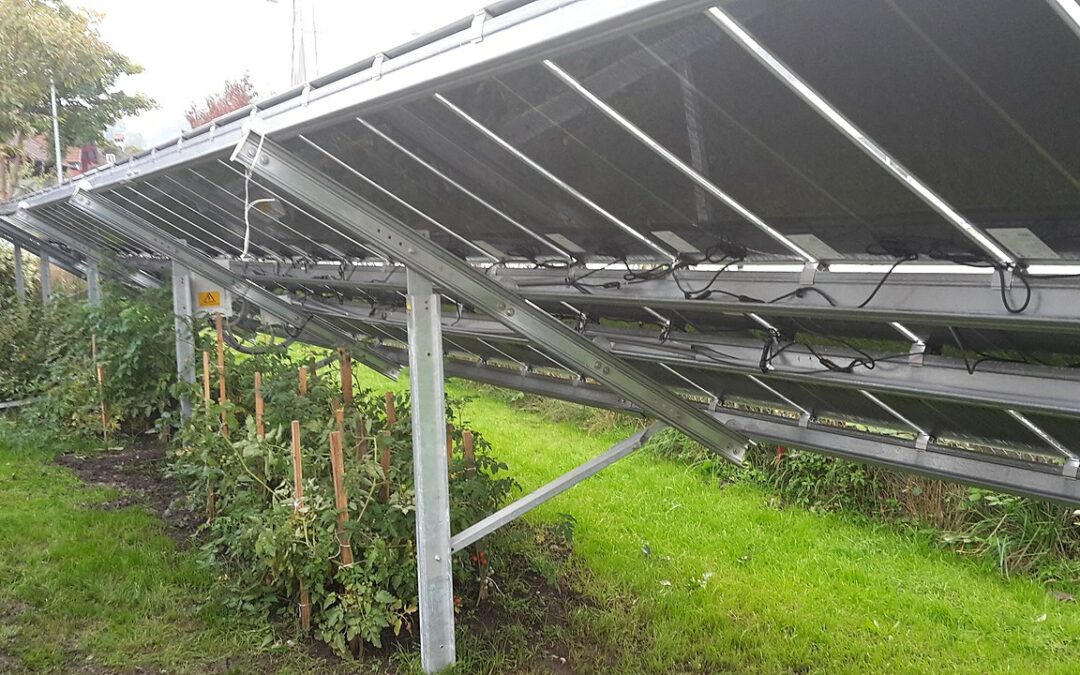


Researchers have conducted a comprehensive analysis and determined that a ground-breaking renewable energy concept has the potential to significantly reduce the payback period for solar panels to less than five years. This innovative approach, known as agrivoltaics or Agri-PV, involves the integration of solar farms with “shadow-friendly” crops. A team of experts from the esteemed University of Lisbon and the Military Academy in Portugal collaborated on this study, highlighting the immense potential of Agri-PV to expedite the global transition towards sustainable energy sources.
By combining agricultural and energy production, Agri-PV not only enhances the value derived from the land but also surpasses the benefits offered by standalone solar farms or agricultural practices. This remarkable synergy is further bolstered by the declining costs of solar panels in recent years and the pressing need for novel solutions to address the growing demands of food production and energy generation. The researchers emphasize that these projects not only augment green energy production and reduce reliance on non-renewable sources but also contribute to a significant reduction in CO2 emissions.
The study reveals that the payback periods for Agri-PV projects range from four to five years, underscoring the economic viability and long-term sustainability of this approach. The researchers assert that Agri-PV surpasses the value proposition of standalone photovoltaic (PV) or agricultural endeavours. These ground-breaking findings have been meticulously documented in a paper titled ‘Agri-PV in Portugal: How to combine agriculture and photovoltaic production,’ which has been published in the esteemed journal Energy for Sustainable Development.
The versatility of the Agri-PV concept is another compelling aspect, as it can be seamlessly integrated into various agricultural practices such as beekeeping, greenhouses, livestock, and horticulture. The implementation of Agri-PV solutions will be tailored to suit the specific requirements of each agricultural domain, ensuring optimal energy efficiency and food production.
Numerous countries are currently delving into the possibilities offered by agrivoltaic systems. Notably, China, Germany, Japan, and the US are among the nations investing in this innovative technology. In South Korea, trials of agrivoltaic farming have already yielded successful broccoli crops.
A comprehensive study conducted in 2022 examined this project and concluded that the quality and taste of the broccoli were on par with those grown using traditional farming methods. This finding highlights the potential of agrivoltaic systems to produce high-quality crops.
Furthermore, the versatility of these systems extends beyond broccoli. Other crops such as carrots, radishes, lettuce, tomatoes, and potatoes can thrive in such environments. Additionally, berries like strawberries, blueberries, and raspberries show promising potential for successful cultivation within agrivoltaic systems.
The exploration of agrivoltaic systems by various countries underscores the growing interest in sustainable and efficient agricultural practices. As the benefits of this technology become increasingly evident, it is likely that more nations will join the ranks of those investing in agrivoltaics.
Do you have land for an Agrivoltaic Farm?
Do you have land in the UK that could be suitable for an agrivoltaic farm? If so, we would love to hear from you! We are looking for landowners who share our vision of powering the UK on solar energy. Together, we can make a difference, by building agrivoltaic farms that benefit everyone in not only the short-term, but also in the long-term.


 New solar panel concept could re...
New solar panel concept could re...



